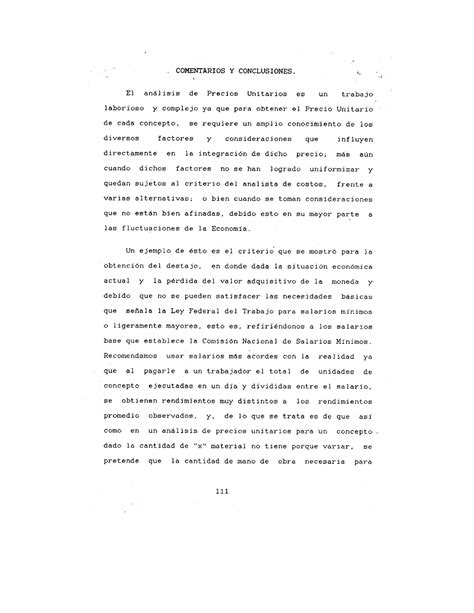Intro
Ginger has been a staple in traditional medicine for centuries, particularly in Asian cultures, due to its numerous health benefits. It is widely recognized for its anti-inflammatory properties, ability to aid digestion, and its potential to alleviate symptoms of nausea and vomiting. However, like any other food or supplement, ginger can have side effects, especially when consumed in large quantities or by individuals with specific health conditions. Understanding these side effects is crucial for maximizing the benefits of ginger while minimizing its risks.
The importance of being aware of ginger's side effects cannot be overstated, especially in today's health-conscious world where natural remedies are increasingly popular. As people turn to ginger for its health benefits, ranging from reducing menstrual pain to lowering blood sugar levels, it's essential to consider how it might interact with other medications or exacerbate certain health conditions. This awareness not only ensures safe consumption but also fosters a more informed approach to health and wellness.
Ginger's versatility, from being a spice in culinary dishes to an ingredient in supplements and teas, adds to its widespread use. Yet, this versatility also means that the potential for side effects can vary greatly depending on the form of ginger consumed, the amount, and the individual's health status. For instance, while ginger tea might be a soothing remedy for one person, consuming high doses of ginger supplements could lead to adverse effects in another. Therefore, exploring the various side effects associated with ginger consumption is vital for promoting responsible and safe use.
Introduction to Ginger Side Effects

Ginger side effects are generally mild and temporary, affecting a small percentage of people who consume it. However, it's crucial to recognize these effects to ensure that ginger is used in a way that is beneficial rather than harmful. Common side effects can include stomach upset, heartburn, and diarrhea, particularly when ginger is consumed in excessive amounts. Understanding the potential for these side effects can help individuals adjust their consumption accordingly.
Common Side Effects of Ginger
Some of the most common side effects associated with ginger consumption include: - Stomach upset: This can range from mild discomfort to nausea and is often a result of consuming ginger on an empty stomach or in large quantities. - Heartburn: Ginger can relax the lower esophageal sphincter, potentially leading to heartburn in some individuals. - Diarrhea: The spicy compounds in ginger can stimulate bowel movements, leading to diarrhea in some cases. - Allergic reactions: Though rare, some people may experience allergic reactions to ginger, which can manifest as hives, itching, or difficulty breathing.Ginger Interactions with Medications

Ginger can interact with certain medications, either enhancing their effects or reducing their efficacy. It's essential for individuals on medication to consult with their healthcare provider before adding ginger to their regimen. For example, ginger may:
- Enhance the effects of blood thinners, increasing the risk of bleeding.
- Interact with diabetes medications, potentially lowering blood sugar levels too much.
- Affect blood pressure, either increasing or decreasing it, depending on the individual and the amount consumed.
Precautions and Considerations
When considering ginger for health benefits, several precautions and considerations should be kept in mind: - Pregnancy and breastfeeding: While ginger is often recommended for nausea during pregnancy, high doses should be avoided. Breastfeeding mothers should also consume ginger in moderation. - Surgery: Ginger's effect on blood clotting means that it should be avoided for at least two weeks before any surgical procedure. - Bleeding disorders: Individuals with bleeding disorders, such as hemophilia, should consult their healthcare provider before consuming ginger regularly.Ginger Allergy and Intolerance

Though rare, some individuals may experience an allergy or intolerance to ginger. Symptoms can range from mild skin rashes to severe allergic reactions. Recognizing the signs of an allergy or intolerance is crucial for seeking appropriate medical attention. Common symptoms include:
- Hives or itchy skin
- Swelling of the face, lips, tongue, or throat
- Difficulty breathing
- Abdominal cramps
- Diarrhea
Managing Ginger Allergy and Intolerance
For those who suspect an allergy or intolerance to ginger, several steps can be taken: - Consult a healthcare provider: A professional diagnosis is essential for determining the best course of action. - Avoid ginger: Until the allergy or intolerance is confirmed and managed, it's best to avoid ginger altogether. - Explore alternatives: Depending on the reason for consuming ginger, other herbs or supplements might offer similar benefits without the adverse reactions.Long-Term Effects of Ginger Consumption

While ginger is generally considered safe for short-term use, the long-term effects of its consumption are less well-documented. Potential long-term effects could include:
- Dependency: Some individuals might become dependent on ginger for digestive relief or other health benefits.
- Nutrient imbalance: Consuming ginger in very large quantities could potentially lead to an imbalance of certain nutrients in the body.
Mitigating Long-Term Risks
To enjoy the benefits of ginger while minimizing long-term risks: - Consume in moderation: Limit ginger intake to amounts that provide health benefits without overdoing it. - Monitor health changes: Regularly check for any changes in health that could be attributed to ginger consumption. - Consult a healthcare provider: Especially for long-term or high-dose consumption, professional advice can help mitigate risks.Conclusion and Future Directions

In conclusion, while ginger offers a plethora of health benefits, being aware of its potential side effects is crucial for safe and effective use. By understanding the common side effects, interactions with medications, and precautions for specific health conditions, individuals can harness the advantages of ginger while minimizing its risks. As research continues to uncover the full potential of ginger, staying informed will be key to maximizing its benefits for overall health and wellness.
What are the most common side effects of ginger?
+The most common side effects of ginger include stomach upset, heartburn, and diarrhea, particularly when consumed in excessive amounts.
Can ginger interact with my medications?
+Yes, ginger can interact with certain medications, such as blood thinners and diabetes medications. It's essential to consult with your healthcare provider before adding ginger to your regimen.
Is ginger safe for pregnant and breastfeeding women?
+Ginger is generally safe in small amounts for pregnant and breastfeeding women but should be consumed with caution. High doses should be avoided, and it's recommended to consult with a healthcare provider.
To further explore the benefits and side effects of ginger, we invite readers to share their experiences and questions in the comments below. Whether you're a long-time user of ginger or just considering adding it to your health routine, your insights can help create a more comprehensive understanding of this versatile and ancient remedy. Share this article with others who might benefit from the information, and let's continue the conversation on harnessing the power of ginger for a healthier, more balanced life.
